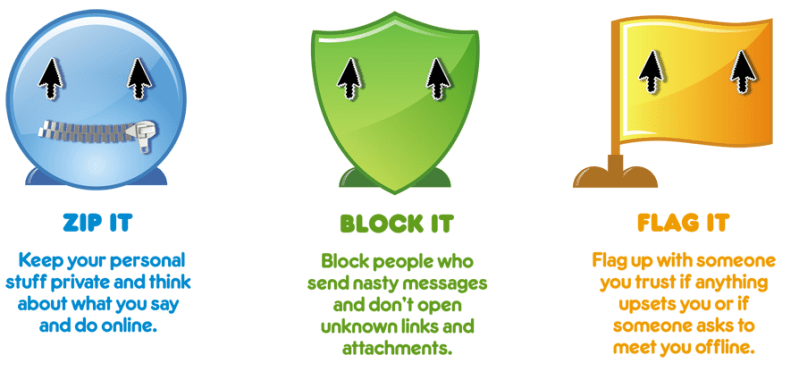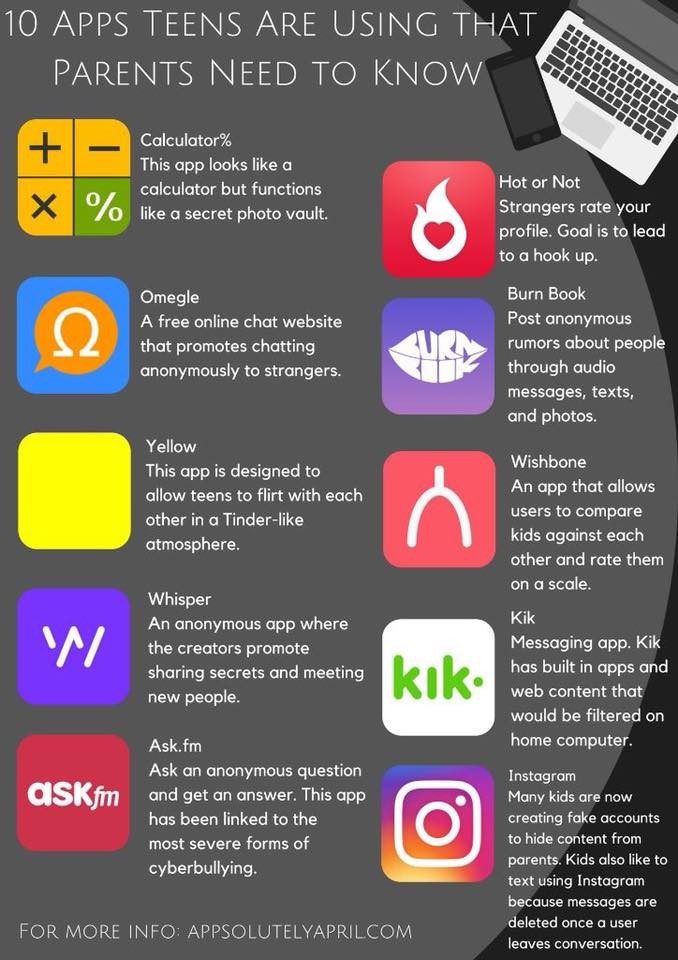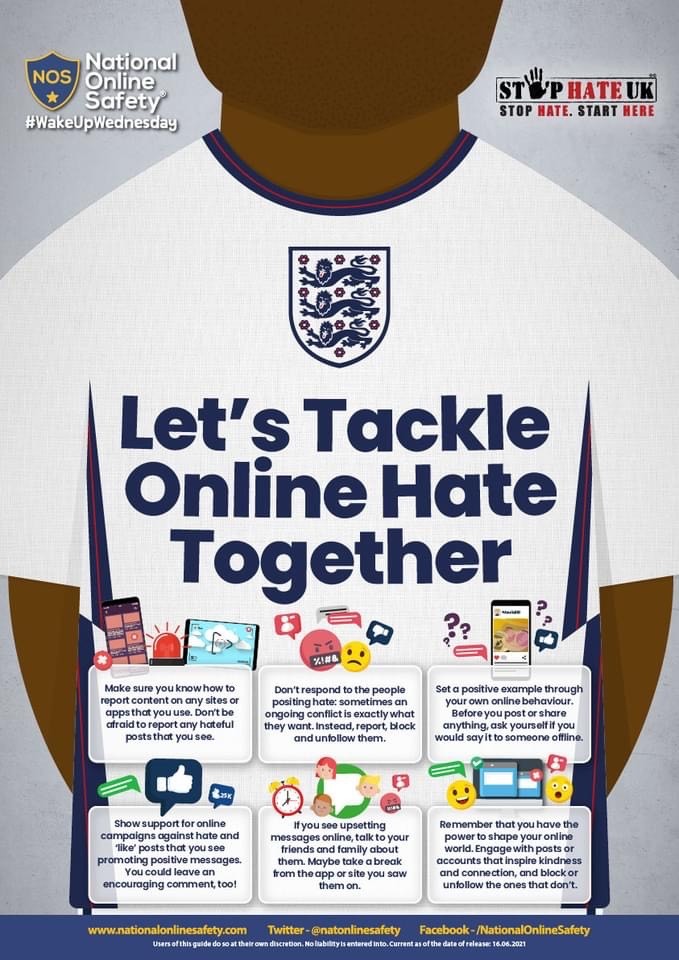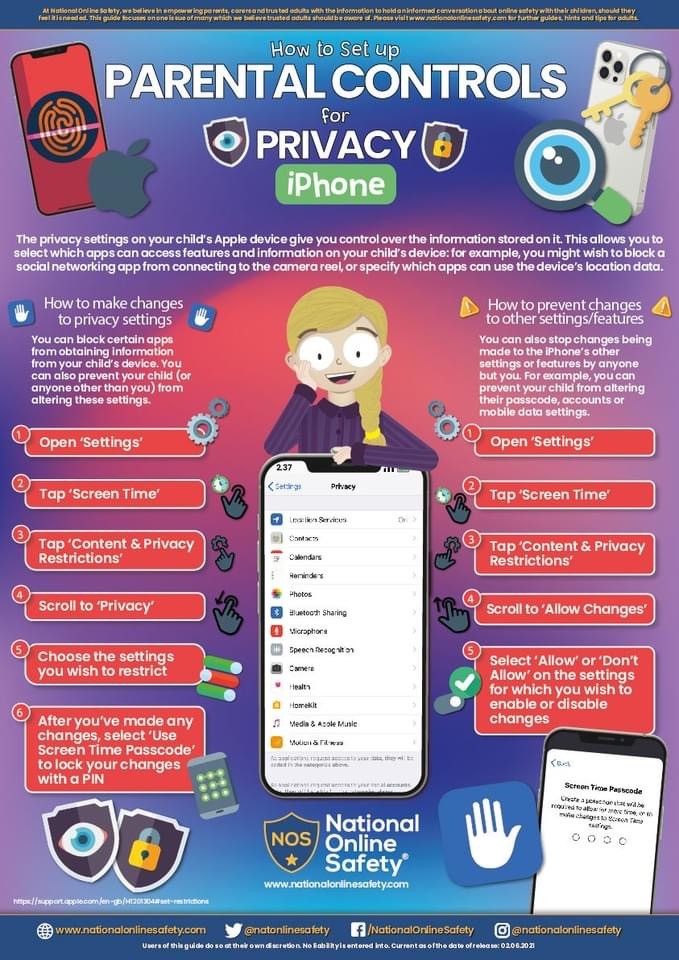Click here for National Online Safety Information
e-Safety
At Sandal, we have robust processes in place to ensure the online safety of pupils, staff, volunteers and governors.
We aim to deliver an effective approach to online safety, which empowers us to protect and educate the whole school community in its use of technology, including mobile and smart technology.
We have clear mechanisms to identify, intervene and escalate an incident, where appropriate
The 4 key categories of risk
Our approach to online safety is based on addressing the following categories of risk:
- Content – being exposed to illegal, inappropriate or harmful content, such as pornography, fake news, racism, misogyny, self-harm, suicide, anti-Semitism, radicalisation and extremism
- Contact – being subjected to harmful online interaction with other users, such as peer-to-peer pressure, commercial advertising and adults posing as children or young adults with the intention to groom or exploit them for sexual, criminal, financial or other purposes
- Conduct – personal online behaviour that increases the likelihood of, or causes, harm, such as making, sending and receiving explicit images (e.g. consensual and non-consensual sharing of nudes and semi-nudes and/or pornography), sharing other explicit images and online bullying; and
- Commerce – risks such as online gambling, inappropriate advertising, phishing and/or financial scam

Miss Yates
Our e-Safety champion
Always remember the following three simple rules:-
E-Safety. Useful Information
E-Safety Links
At Sandal, we put a major emphasis on educating our children so they can use phones, computers and tablets, and the internet safely and effectively. The links below provide information and activities for children of all ages as well as providing useful information for parents too.
Reception
Smartie the Penguin: An e-safety story for 3 to 7 year olds. Join in with Daddy Penguin’s song and follow the adventures of Smartie and Daddy Penguin as Smartie learns how to be safe on the internet.
Key Stage 1
Hector’s World: For 5 to 7 year olds, this website helps children learn how to use the internet in a safe way and lets them know who to talk to if they are worried.
Key Stage 2
Think you Know: this is aimed at 8-10 year olds and provides an opportunity for them to explore the risks involved using the internet and providing tips on how to stay safe.
BBC E-Safety Links: This website has a variety of games, activities and information to help educate your child about how to use electronic devices safely.
If you have a worry about E-Safety…
Always talk to a TRUSTED adult. This could be a parent, relative, teaching assistant or teacher. Let them know what you are concerned about and see if they can help. We will do our best to help you.
If your concern is more serious, you may need to use the CEOP reporting tool, this is a site run by the police.
More Useful links:-
Information about photography in schools
Suggesting Home & Family Guidelines
- Talk together and have fun learning together.
- Involve everyone and agree your family guidelines and rules. Remember that sometimes what is acceptable for a Year 6 child is not necessarily acceptable for a Year 3 child.
- Discuss regularly online safety and go online with your children. Communication is the key to eSafety.
- Keep virus and firewall software up to-date.
- Enable your ‘browser safe’ search option and/ or consider using internet filtering software, walled gardens and child-friendly search engines.
- Keep the computer in a communal area of the house, where it’s easier to monitor what your children are viewing. Never let children have webcams, or similar, in their bedroom.
- Talk to your children about why they should not to give out their personal details. If they want to subscribe to any online service then make up a family email address to receive the mail.
- We all love to chat and children are no different. Encourage your children to only use moderated chat rooms and never ever to meet up with an online ‘friend’ without first discussing it with you.
- Time children spend offline following a range of other activities is equally, if not more, important. Time spent online should be monitored to help prevent obsessive use of the internet
- Encourage your children, and in fact all family members, to tell you if they feel uncomfortable, upset or threatened by anything they see online.
- Have proportionate responses if the family guidelines are not followed.





